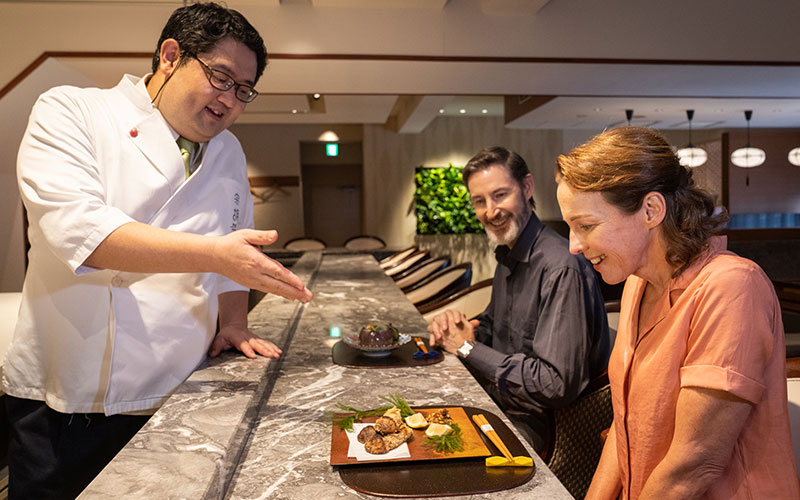Japan's ancient world of Zen Buddhism-inspired vegetarian cuisine has been given a fresh modern upgrade by top Tokyo chef Daisuke Nomura. Accompany the culinary innovator on a shojin ryori journey - from morning vegetable market shop to an exclusive private tasting in his restaurant.
The eggplant resembles more still life painting than dinner. Perfectly round with velvet-smooth purple
skin, treasure-like treats spill from its scooped out center - from green bell pepper to mugwort wheat
gluten - all wrapped in a clear glaze-like sauce.
Just next to it sits a no less artful dish: an abstract square plate bearing aromatic tempura-cooked matsutake mushrooms, caramelized walnuts and a
scattering of forest-like leafy fronds.
"Every vegetable is unique," says Chef Daisuke Nomura, smiling serenely as he surveys his creations. "We
are trying to show each vegetable's special qualities, without any waste."
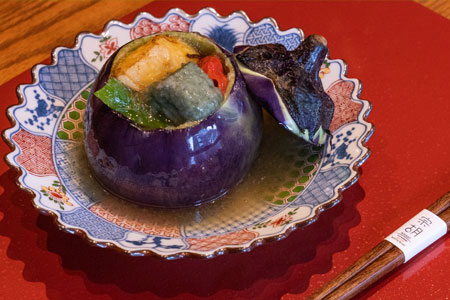
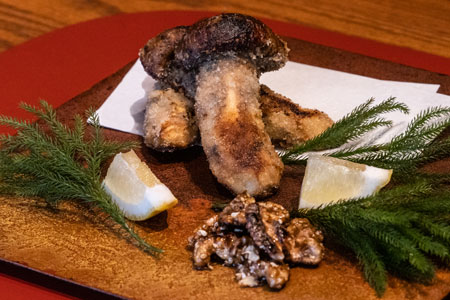
It's all about vegetables at Shojin Sougo, Chef Nomura's restaurant in Tokyo's Roppongi district, which
specializes in a centuries-old plant-based style of cooking known as shojin ryori
- with a fresh, modern twist.
Dating back over 600 years, shojin ryori was developed by Japan's 13th century Zen
Buddhist monks. Pure in aesthetics and taste as well as origin, the meat-free cuisine is imbued with the
mindful spirit of Buddhism alongside expressions of gratitude and minimal waste.
Five is the magic number - dishes are created in a diverse range of five colors (red, green, yellow,
white and black); five flavors (sweet, bitter, salty, sour and spicy or umami);
and five cooking styles (raw, simmered, fried, steamed and grilled).
A signature so-called sixth flavor is tanmi - known as "the subtle flavor," which
ensures minimal seasoning. The ultimate no-waste cuisine, every part of the vegetable is typically used,
out of respect for all living creatures (yes, vegetables included).
Chef Nomura is something of a rockstar in the shojin ryori world. Acclaimed
internationally (he has shared his expertise at prestigious institutions across the globe, such as the
Culinary Institute of America), the third generation chef balances the ancient art form with a modern
playfulness.
While his family background is rooted in shojin ryori traditions, Chef Nomura is
unafraid of innovation, often mixing unusual ingredients to contemporary effect (an example? His
show-stopping miso-glazed banana).
Food-loving visitors to Tokyo can now enjoy an intimate deep dive into the world of shojin ryori. It all starts early in the morning, with a personal visit alongside
Chef Nomura to the morning market at Tsukiji, central Tokyo.
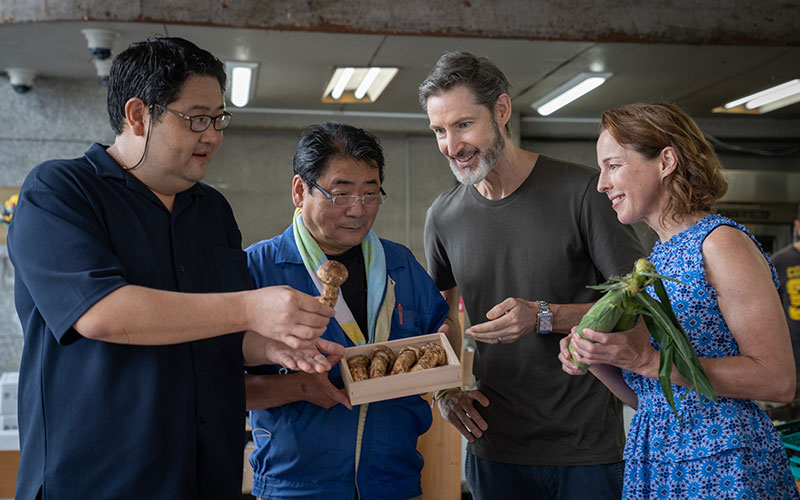
The market is something of a morning mecca for many of Tokyo's professional chefs, due to the rich
diversity and high quality of the fresh seasonal produce sold here daily, sourced directly from
different regions across the country.
Here, Chef Nomura chats informally about all things shojin ryori, as he offers
insight into the season's vegetables, before buying his pick - on one recent occasion, unusually round
eggplants known as kamonasu and earthy matsutake
mushrooms.
The climax unfolds at his restaurant Shojin Sougo the next evening (after a day of preparation). Here,
while talking visitors through the cuisine, from history to techniques, Chef Nomura presents the
vegetables transformed into exquisite shojin ryori treats.
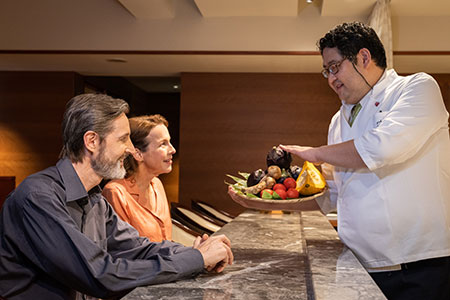
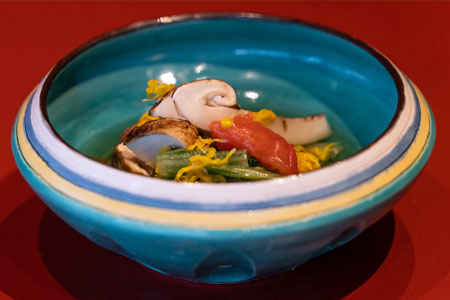
The experience taps into a growing global appetite for plant-based eating, according to Chef Nomura,
whose mission is to convey to the world the timeless appeal of Japan's ancient, sustainable - and
unwaveringly tasty - vegetarian cuisine.
"Overseas vegans and vegetarians have a real interest in shojin ryori as it has
such a long, rich history," he says. "We have so many varieties in terms of cooking styles and dishes.
It's also zero waste which makes it very appealing."
